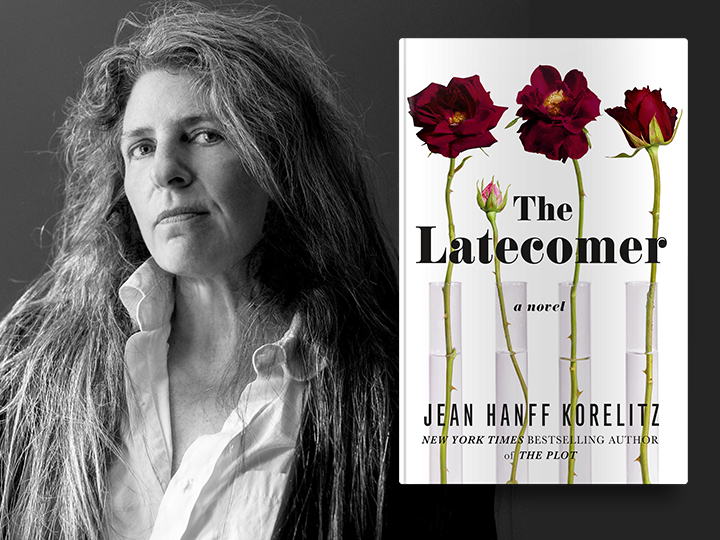Celadon Books sat down with author Jean Hanff Korelitz to discuss her latest book The Latecomer, an immersive, deeply perceptive story of three completely different triplets, and the upending of their family with the late arrival of a fourth.
How did you come up with the idea for The Latecomer?
I’d heard about families with children conceived by in vitro fertilization who have additional children years later from leftover embryos, and I found this really fascinating. I was especially interested in the impact on the later child of learning that their family has essentially begun without them. In one sense, it’s no different from what any younger sibling eventually realizes, but here the children have all been “made” at the same time, and there is a random or human factor in who gets born and who does not. I thought: What would that feel like, to realize what you’ve missed? And what if the later child somehow answers the brokenness in the older siblings and in the family as a whole? So, I made up a family to explore some of these issues and watch those ideas play out.
How is The Latecomer different from or similar to your previous seven novels?
I’ve written on both sides of the literary/thriller line, wherever that may be — if someone locates it, would they please enlighten me? — and The Latecomer definitely belongs on the literary side. This is not to say that there aren’t twists: Life is too short not to have plot twists in every novel one reads! But the story of this family does not center around a crime — at least not a crime in the conventional sense!
The sibling dynamics in this novel are so nuanced and complex. What was your process in creating these very different siblings?
It was like setting off on four different journeys at once, and those journeys didn’t even begin in the same place or at the same time! I was fascinated by the ways in which these brothers and sisters tried so hard to escape one another, and how they were fated to return, but only by the intervention of their lost sibling. Or, I suppose you could argue, siblings, plural. Keeping track of who knows what and when they know it was quite complicated, but worth it in the end.
Do you relate to any one of the triplets, or other characters, in particular?
All of them, even Harrison! I share Sally’s tendency to hide, Lewyn’s feelings of inadequacy, and Harrison’s disdain for people who don’t share his political opinions! (I know I’m supposed to be more open-minded, but I didn’t get through the last four years unscathed.) I also share Phoebe’s impatience with people who can’t get along and Ephraim’s wish to get to the bottom of things. I share Johanna’s difficulty in reconciling an idea of family life with its reality and Salo’s yearning for absolution. It’s not difficult to find something in most people to connect to. (Eli, though? He’s on his own.)
The family moves around a lot in the book — from Brooklyn to Martha’s Vineyard in Massachusetts to Ithaca, New York, and elsewhere. How does the setting of The Latecomer contribute to the story?
In one earlier draft, the Oppenheimer family set off on a round-the-world cruise, and in another they traveled to Germany to investigate the life of Joseph Suss Oppenheimer (aka Judd Suss), so the final version of the novel feels pretty sedentary by comparison! The novel opens with a dispersal as the triplets leave home and ends with a gathering. I have always loved the G. K. Chesterton quote about wandering to the ends of the earth, only to be brought back by a twitch upon the thread, which was so powerfully used by Evelyn Waugh in Brideshead Revisited. I definitely had that in mind as I watched these siblings wander and return.
A couple of your previous novels have made their way on-screen. If you could cast the Oppenheimer triplets yourself, who would play them?
I’m not great at this kind of thing, but Nicole Kidman and Hugh Grant should obviously play the parents!
What do you hope your readers will take away from the book?
That people aren’t always who they appear to be. That houses can be like people in more ways than one. That Henry Darger isn’t the only Outsider Artist. That religion and politics sometimes serve the purpose of more intimate human needs. That sometimes we only learn to know a person after they’ve left us. That great art can heal our souls. That even families twisted by resentments and grievances can be brought back together by forgiveness and love.

